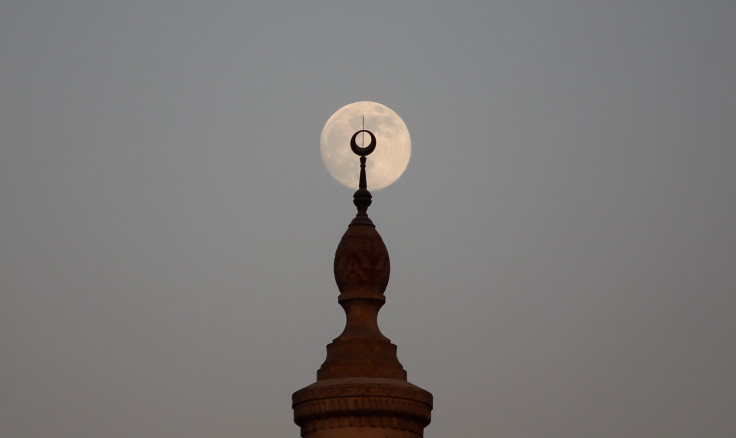Ramadan Predictions 2015: Moon Sighting, Astronomical Calculation Disputes Prevent Muslim Consensus On The Start Of The Islamic Holy Month

Two different astronomical associations in the Middle East have announced this week their projections for the start date of Ramadan, predicting that the Muslim holy month will begin on June 18. But most Muslims won’t be marking their calendars just yet. That's because the start date of the annual religious observance is a matter of theological and scientific dispute across the Muslim world, often resulting in many countries and communities celebrating on one day and others a day or even two later.
Among the biggest reasons for this phenomenon are the various divisions that exist among the world’s 1.6 billion Muslims over the accepted method for determining the start of a new month. The word "Ramadan" refers to the name of the ninth month on the Islamic calendar, during which Muslims fast from sunrise to sunset, in one of Islam’s most sacred observances. Because the Islamic calendar is lunar, unlike the solar-based Gregorian calendar, the start of the month is dependent on when the new crescent moon is sighted.
Throughout much of Islam’s early history, sighting the new moon was a relatively simple endeavor. Muslims would make naked-eye observations of the sky and determine the start of Ramadan together with their local communities based on these sightings. Many Muslims have continued to maintain this tradition as the most correct way to determine the start of the holy month, eschewing more modern methods. Others agree that physically sighting the new crescent moon is necessary, but argue that it can be done with the aid of a telescope.
The variability in celebrations between regions that resulted from relying on moon sightings -- which can often be unreliable and hindered by weather and other factors -- has in more recent times prompted some Muslim leaders to turn to science. Astronomical associations have taken the lead on predicting the start date of the holiday, often issuing their projections weeks in advance.
The Sharjah Planetarium in the United Arab Emirates announced its prediction this week that Ramadan would begin June 16, followed shortly by the Cafe Scientifique in Dubai, whose lead astronomer and founder even recommended that Muslims download apps in order to check for themselves when the moon is scheduled to rise. Many have argued that because science can precisely account for when the moon will appear, this method is superior to relying on sometimes faulty physical moon sightings.
The religious divergence on the acceptability of using certain technologies has led to varying approaches by Islamic authorities around the world, which is why many countries celebrate the start of the holy month and the two other major Muslim observances (Eid al-Fitr and Eid al-Adha) on different days.
Muslim leaders in countries like Turkey and France base their announcements on astronomical calculations. Saudi Arabia, on the other hand, has a panel of scholars who base their proclamations on moon sightings. Regional religious authorities in countries like Egypt and Kuwait typically coordinate their proclamations with those of Saudi Arabia, which, as the birthplace of Islam and home of its holiest city Mecca, is accorded a special authority on these matters by many Sunni Muslims.
In most Muslim-majority countries, top religious authorities, often operating as a state-sanctioned arm of the government, are tasked with deciding and announcing the start dates of these holidays. However, even within countries there is variability, particularly among minority groups that do not recognize the authority of local religious leaders or choose to adhere to their home country’s decision on the matter.
Bahrain, which is Sunni-ruled but 70 percent Shiite, has in previous years seen much of its population disregard the recommendation by its official religious establishment and begin their Ramadan observance the following day.
And while European Muslim religious authorities have pushed for a wider embrace of the astronomical calculation method, in countries like Britain, where Muslims are primarily of South Asian origin, many communities continue to rely on moon sightings. "It's a bit confusing," Usama Hasan, senior researcher at the Quilliam Foundation in London, told Reuters. "If they can't see the moon in Britain, they'll follow what's happening 'back home.' There's a lot of ignorance of the science."
© Copyright IBTimes 2025. All rights reserved.





















